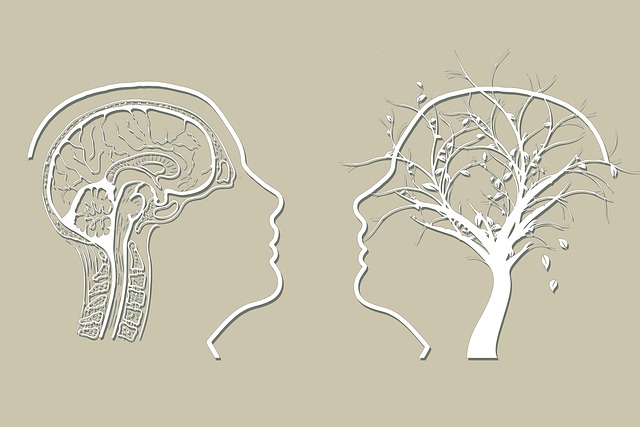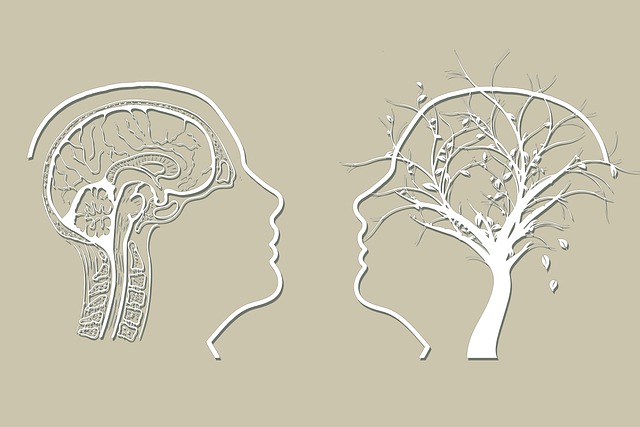Burnout among healthcare providers is a growing concern, impacting well-being, patient care, and systems. It's characterized by emotional, physical, and mental exhaustion coupled with cynicism, often caused by demanding roles, long hours, and lack of support. Self-care practices like exercise, sleep, mindfulness, and therapy are crucial for prevention, especially for those in complex personal dynamics. Centennial Polyamorous and Open Relationships Therapy (CPOR) offers a unique approach to managing stress and building resilience. Fostering a supportive work environment through team collaboration, mental health awareness, and policy advocacy is essential. CPOR Therapy integrates principles of emotional regulation and self-care, enhancing the mental wellness of healthcare providers while respecting diverse interpersonal dynamics.
In today’s demanding healthcare landscape, burnout among providers is a pressing concern. This comprehensive guide explores effective strategies to combat burnout, ensuring a healthier, more resilient workforce. From recognizing symptoms and understanding causes to implementing self-care practices and fostering supportive environments, we delve into actionable steps. Additionally, we examine the unique perspective of Centennial Polyamorous and Open Relationships Therapy as an alternative approach to promote long-term wellbeing.
- Understanding Burnout: Symptoms and Causes in Healthcare Providers
- The Role of Self-Care in Preventing Burnout: Strategies for Balance
- Fostering a Supportive Work Environment: Team Collaboration and Communication
- Integrating Mindfulness and Resilience Practices for Long-Term Wellbeing
- Exploring Alternative Therapies: Centennial Polyamorous and Open Relationships Perspective
Understanding Burnout: Symptoms and Causes in Healthcare Providers

Burnout among healthcare providers is a growing concern, impacting not only individual well-being but also patient care and the overall health system. It’s essential to recognize that burnout is more than just feeling stressed; it’s a state of emotional, physical, and mental exhaustion, often accompanied by cynicism and detachment from work. Healthcare professionals are at particular risk due to the demanding nature of their roles, long working hours, and high-pressure environments.
Symptoms can include chronic fatigue, insomnia, decreased productivity, irritability, and a sense of detachment from patients. Underlying causes are multifaceted, encompassing factors like heavy workload, lack of control over work processes, poor support systems, and the mental illness stigma. For instance, healthcare providers in open relationships or non-traditional families may face unique challenges, requiring specialized support as they navigate both their professional and personal lives. This is where Centennial Polyamorous and Open Relationships Therapy can play a significant role, offering coping mechanisms and strategies to manage stress while fostering resilience against burnout. Additionally, risk assessment for mental health professionals should be prioritized through regular check-ins and comprehensive Mental Illness Stigma Reduction Efforts to create a supportive work environment.
The Role of Self-Care in Preventing Burnout: Strategies for Balance

In the healthcare industry, where long hours and high-stress environments are common, self-care is a powerful tool in preventing burnout among providers. Beyond meeting the demands of their profession, healthcare workers must prioritize their own physical and emotional well-being to sustain a healthy work-life balance. This involves integrating practices that nurture both mind and body, such as regular exercise, adequate sleep, and mindfulness techniques. For those navigating complex personal dynamics like Centennial Polyamorous and Open Relationships, seeking therapy can be transformative in managing stress and cultivating resilience.
Additionally, engaging in activities that bring joy and a sense of accomplishment outside of work is crucial. This could include pursuing hobbies, connecting with loved ones, or joining support groups. Stress Management Workshops organized by professional organizations can equip healthcare providers with valuable coping strategies. By implementing these self-care practices, healthcare professionals can enhance their mood management and self-esteem improvement, ultimately fostering a more sustainable and fulfilling career in medicine.
Fostering a Supportive Work Environment: Team Collaboration and Communication

In healthcare, fostering a supportive work environment is paramount to prevent burnout among providers. Team collaboration and effective communication are cornerstone strategies that can create a positive culture shift. When mental health awareness is prioritized, healthcare professionals feel valued and empowered, leading to improved job satisfaction and reduced stress levels. This sense of belonging and mutual support can significantly enhance mood management, ensuring providers have the emotional resilience needed to navigate challenging situations.
Centennial Polyamorous and Open Relationships Therapy, for instance, highlights the importance of open dialogue and understanding diverse interpersonal dynamics. By integrating such perspectives into broader mental health policy analysis and advocacy, healthcare organizations can better address the unique needs of their workforce. This inclusive approach not only promotes a healthier work environment but also reflects a commitment to holistic Mental Health Awareness, ultimately contributing to a more sustainable and compassionate healthcare system.
Integrating Mindfulness and Resilience Practices for Long-Term Wellbeing

In today’s demanding healthcare landscape, burnout among providers is a persistent issue that significantly impacts both individual well-being and patient care. A holistic approach to prevention involves integrating practices that foster mindfulness and resilience. This not only includes evidence-based techniques like Mind Over Matter principles but also embracing therapeutic models that cater to unique populations, such as those in Centennial Polyamorous and Open Relationships Therapy. By combining these strategies, healthcare professionals can cultivate a deeper sense of mental wellness, enhancing their ability to navigate the challenges of their roles over the long term.
Beyond individual therapy, Mental Health Policy Analysis and Advocacy plays a crucial role in creating supportive work environments. Implementing policies that encourage self-care, promote work-life balance, and provide access to resources for Mental Wellness Journaling Exercises can contribute to a culture where resilience is nurtured and burnout is prevented. These collaborative efforts ultimately create a more sustainable and effective healthcare system that benefits both providers and the communities they serve.
Exploring Alternative Therapies: Centennial Polyamorous and Open Relationships Perspective

In recent years, exploring alternative therapies has gained significant traction within the mental health community, particularly from a Centennial Polyamorous and Open Relationships perspective. These non-traditional approaches offer unique insights into addressing burnout among healthcare providers who often grapple with intense emotional demands. Therapies like Centennial Polyamorous and Open Relationships (CPOR) provide a safe space for individuals to explore intimate connections outside of conventional monogamous norms, fostering better emotional regulation and resilience. By integrating these principles, mental health professionals can enhance their own mental wellness through improved self-care practices and cultural sensitivity in their practice—a crucial aspect of the Mind Over Matter principles.
Journaling exercises that delve into one’s emotions, desires, and boundaries, similar to those encouraged in CPOR therapy, can serve as a powerful tool for healthcare providers to maintain balance. This form of self-reflection, combined with guidance from open-minded therapists, allows practitioners to process complex feelings and build healthier interpersonal dynamics. Cultural sensitivity plays a vital role here, ensuring that diverse perspectives are respected and integrated into therapeutic practices, thereby enriching the overall experience and promoting holistic mental wellness.
Healthcare provider burnout is a complex issue, but by understanding its symptoms and causes, we can implement effective prevention strategies. Incorporating self-care practices, fostering supportive work environments, and integrating mindfulness techniques are vital steps towards maintaining long-term wellbeing. Additionally, exploring alternative therapies like Centennial Polyamorous and Open Relationships Perspective can offer unique paths to resilience and balance. By combining these approaches, healthcare professionals can navigate their careers with enhanced satisfaction and emotional resilience.














